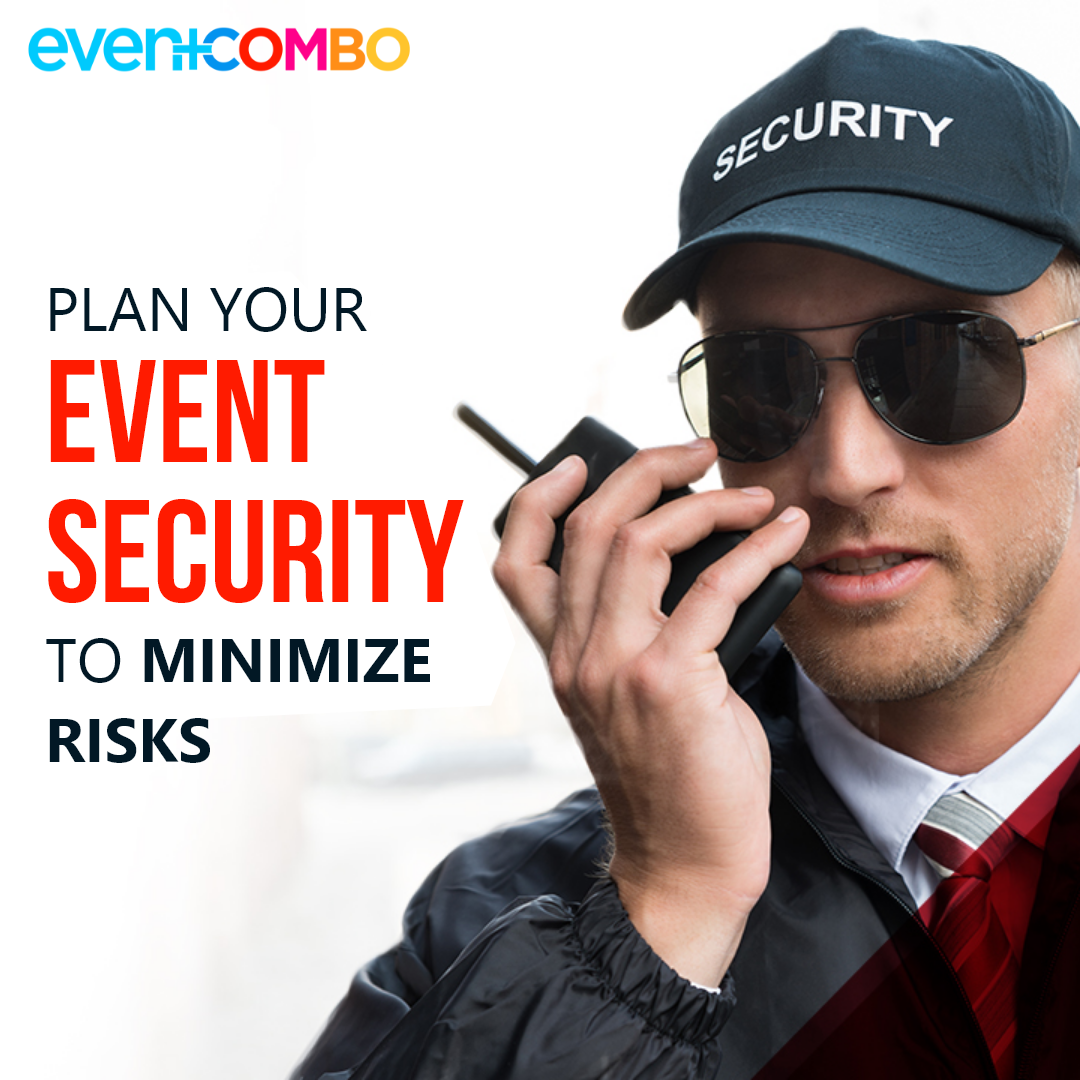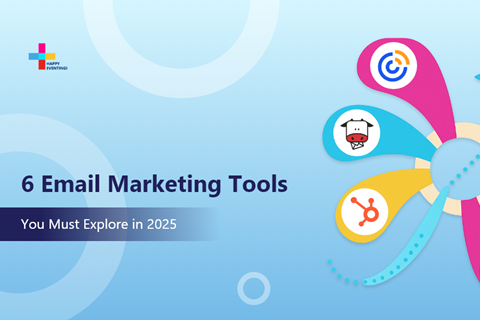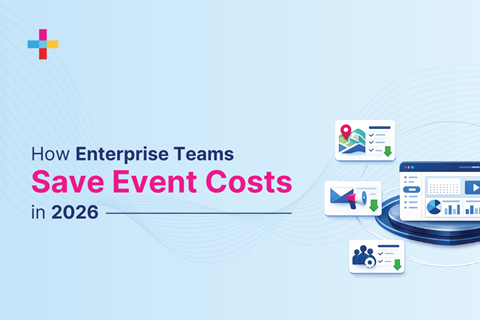Events in the past two years required some major cybersecurity overhaul as the shift to virtual was dramatic and needed security measures that were missing in long-standing in-person event formats. However, now we are focusing back on in-person events and there’s yet another round of overhaul required because the industry in the post-pandemic era is witnessing a huge surge of in-person events, which are now becoming more frequent and bigger, and include more dimensions than ever before.
Be it any size or type, events need an adequate security plan to ensure safety of attendees, staff, and property. The absence of essential security measures can make events vulnerable to a range of threats, including terrorism, violence, theft, property damage, and more.
Event planners work with an indefatigable spirit, creating synergy among a gazillion micro and macro elements like attendee engagement, event experience, interactive agenda, budget, etc. But often when it comes to event security, they simply assign the task to a security agency just like partnering with yet another vendor, and that isn’t the ideal thing to do. Obviously, you don’t need to look after every security detail like positioning security personnel or the kind of detectors to be used, because an efficient security agency would know it better. But for the security agency to optimize its role, event planners must have an extensive strategy encompassing every aspect of the event. To design security measures that can commensurate with the event agenda and goal, the security plan should be openly and extensively discussed between both parties (organizer and security agency) before being implemented.
Event Security Planning Starts Way Before You Think It Does
Do you know for an event security plan to work right it is essential that your attendees are on the same page. That is why pushing the task to a later stage can leave dangerous loose ends.
Begin with outlining basic security rules like restricted baggage items, carrying specific identity cards at all times, screening procedures (temperature and health checks) guests will have to go through, etc. Remember, these instructions should not cause unnecessary alarm or rouse their safety instincts more than their excitement for the event.
Mention details on your event invite, landing pages, or tickets. That is why you need to chalk out your event security strategy before the wheels go into motion. And obviously, if you have to mention the protocols on invitations, the plan should already be in place.
Developing a concrete plan at an early stage also leaves an impression on the audience about how much the organizers are concerned about attendee safety. If your temperature is checked while entering, you feel safer that all others are well too!
Aspects a Security Plan Should Cover
A comprehensive security plan should cover a range of aspects to ensure that all potential risks are addressed. Some of the key aspects that should be covered include
1. Crowd Control: Managing flow of people at entrance and exit points, queue management, and establishing crowd barriers.
2. Access Control: Using manual checks or metal detectors to prevent weapons or other prohibited items from entering the venue.
3. Emergency Response: Quick response to medical emergencies or weather-related situations like evacuation or a first aid plan.
4. Threat Assessment: Identifying potential risks and vulnerabilities by assessing the venue, surrounding areas, and the people attending the event.
5. Staff Training: Preparing the crew for handling emergencies, identifying potential threats, and controlling crowds.
6. Contingency Plans: Tackling unexpected events, such as power outages, equipment failures, or natural disasters.
7. Communication: Ensuring everyone who is a part of the plan can communicate effectively, including staff, attendees, and emergency responders.
8. Technology: Reinforcing the security plan with video surveillance, facial recognition, or RFID tracking.
7 Event Security Tips for Enhancing Safety and Minimizing Risks
1. Crowd Management – The first step to crowd management and control starts with ensuring attendee number does not exceed beyond venue capacity. This is very crucial for all other security measures to work as planned. Over-crowding can cripple contingency plans, access controls, and staff support, and cause a domino effect on all other aspects.
Discuss the security personnel to attendee ratio (ideally 1 security personnel to 100 attendees) as well as staff to attendee ratio (ideally 1 staff to 50 attendees) and make sure the standards are met. Overpopulating security personnel can seem shady while curtailing on their count can make the event security vulnerable.
While choosing a security service agency, make sure they are capable of handling large crowds.
Crowd management also includes tracking
- Total number of guests present at any point of time
- Guests coming in and going out
- Guests staying away from off-limit areas
- Guests not blocking entry/exit points
2. Keeping Events Private or Ticket Based – Events that are meant for VIPs or are invite-only should not be over-publicized. This idea may seem revolting to the marketing team but a closed event or event organized for specific high-worth officials need not be publicized outside the core demographic. If an event is meant for government officials or higher management, it should be kept under wraps or refrained from too many promotions.
Another way of managing who attends your event is by making it a ticketed event. Even if it is free, tickets (needless to say must be online) should require registration details and double authentication with SMS and emails. These controls can provide an open database for checking the backgrounds of attendees and suspicious ticket-buying patterns. Also, while entering, badge or ticket scans can help identify attendees during the event.
3. Controlling All Accessible Check Points – Security team, trained to identify items that can be used as weapons, abnormal behaviors, or suspicious movements, must be deployed. Checking for health certifications, vaccination certificates etc. can also be considered at in-person events.
Although these checks are not magically effective, making them visibly strict can have a psychological impact on people, inducing the fear of getting caught, and deterring imposters from attempting to sabotage the event in any way.
Knowing the venue inside out can help establish perimeters and boundaries, and design checkpoints. Creating a checkpoint diagram is also important for crowd control. You see, avoiding long queues at checking counters, banquets, lobbies, etc., has to be planned, synced, and implemented. (Still wondering why, we mentioned earlier that planning security must begin at the event onset?)
4. Knowing Your Venue and Staff Through and Through – The venue’s location, layout, and architecture affect your emergency plans, safety compliances, agenda detailing, and inquiry for which these must be included in the very first RFP.
Here are some points to keep in mind
- It's unfortunate, but criminal and other malicious activities often have someone involved from the inside.
- Make sure the venue staff is screened and categorized into different access levels.
- Request the list of security features provided at the venue, such as surveillance cameras with no blind spots, internal security plan, evacuation plans, standby emergency medical team, etc.
- It is impossible to screen the vendor’s staff, so make sure you do your complete due diligence while choosing vendors and ensure they are as responsible as you are.
- The authority should be well-defined. Leave managing troublesome attendees to security rather than engaging with them
5. Having Strong Communication Channels – Tight communication between all teams is necessary to stay on top of your plan. Make sure the staff and department heads have walkie-talkies to communicate seamlessly. Any suspicious movement needs to be reported and the surveillance teams should keep a tab and sharp focus on inputs from ancillary teams.
In case you have a professional security agency hired for the event, make sure they are in sync with your own and the venue’s staff. Training the staff for the worst is your best bet to handle any crisis because they are the front line of defense in case things go south. Time and energy put to train and explain the security plan is a very significant part of the entire event planning.
6. Always Having an Emergency Plan - This point actually summarizes the whole security plan. An emergency can come in any form and threat. All the teams involved must know emergency contacts, helpline numbers, emergency exits, and think proactively.
Share an emergency manual with guests too and you’ll be surprised to know many of them actually read it (because of the prevailing uncertainty and number of incidences happening at events). Even few of your guests can become your asset, switching from the to-be-taken-care-of side at the time of an incident.
Rely on event technologies like event app for keeping guest information handy and distributing push notifications in real time about any crisis.
7. Using Technology Wherever Possible – We are blessed to be in an era that has unbelievably supreme tech-solutions. Integrating technology at every possible nook of the event can prevent chances of lapse and help deal with crises better.
The technology you use should be able to keep you a step ahead of hurdles, and easy to adapt to and understand by the audience as well. An event app, QR wristbands, digital access cards etc., are some of the basic and must-have technologies that can be incorporated.
Let’s say you want to control over-crowding at some popular session, push notifications through the event app can be used to divert the audience to other rooms or start a refreshment break.
A complete sit-down detailed meeting with security teams and planners is must to cover event security from a bird's-eye view. As easy as hiring a security agency seems, a lot of input, forethought, and planning is required on the part of event planners.
Additionally, every event is unique and a uniform security plan cannot fit all. Consider the grade of security required by your guests, more importantly, if they are politically influenced, have a controversial history, or are celebrities. Is there a bar? Would you need additional bouncers to manage alcohol menace? Also, there comes data security to manage event-related online activities.
You want your guests to go home happily and safely. Therefore, test your plan, perform a dry run or drill, and document all your observations so you can take heed to improve and improvise in future events.









